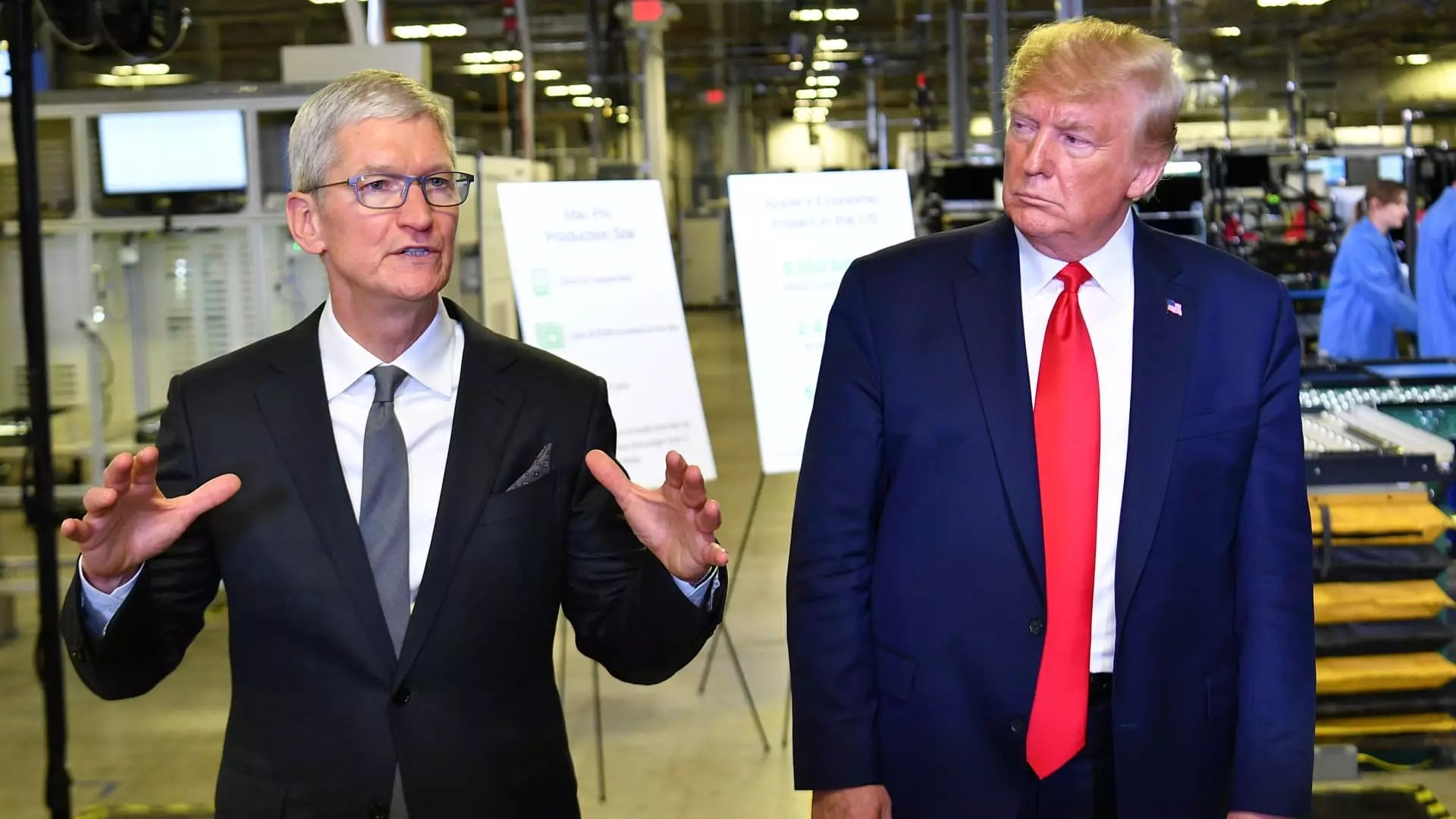In a brazen social media assertion early Friday, President Donald Trump declared that Apple must brace itself for significant tariffs, estimating at least 25% on iPhones manufactured overseas. His declaration represents a steadfast reiteration of his commitment to reshaping trade dynamics in favor of American manufacturing. Yet, what does this really entail for the average consumer? The anticipated surge in iPhone prices is troubling; estimates suggest that if production were to relocate entirely to the U.S., the cost of an iPhone could skyrocket to a staggering $3,500. For many, a high-end smartphone should not come with the fiscal burden of a luxury vehicle.
As a center-right commentator, I am well aware that tariffs—while intended to shield American jobs—often backfire, imposing undue financial strain on consumers and businesses alike. This scenario inevitably calls into question the effectiveness of such an aggressive stance on trade, particularly when it leads to increased prices for everyday goods, like smartphones that are crucial for modern life.
Political Currents: A Lesson in Trade Relations
The nuanced relationship between Apple’s CEO Tim Cook and Trump has seen oscillation, hovering between cooperation and contention. Cook reportedly conferred with Trump at the White House, possibly to deliberate on ways the tech giant could bolster domestic manufacturing. However, Cook’s previous donations to Trump’s inauguration fund complicate the narrative, indicating a deeper entanglement of business and politics.
Apple’s foray into diversifying its manufacturing by shifting some production to India underscores an acute awareness of geopolitical realities. With a trade relationship between the U.S. and India becoming more amicable, it raises eyebrows whether Trump’s ultimatum is more of a strategic play against perceived adversaries rather than a genuine effort to uplift American labor. The paradox of promoting domestic manufacturing while simultaneously condemning international partnerships is a defining characteristic of this administration’s trade policy.
The Financial Hit: What Lies Ahead for Apple
Stock market reactions can be volatile, and Apple’s shares dipping by 3% in premarket trading is indicative of investor anxiety over the potential fallout from Trump’s threats. This anxiety is compounded by the looming uncertainties regarding tariffs, as noted by Cook himself during Apple’s earnings call, where he characterized the tariff landscape as “very difficult to predict.” Apple has already predicted nearly $900 million in additional costs linked to tariffs in the upcoming quarter. Is this sustainable for a business model reliant on global supply chains?
Moreover, Apple’s venture into investing $500 billion into U.S. development, particularly in areas like AI server production in Houston, highlights the company’s attempts to align itself with the administration’s priorities. However, these moves might not be enough to shield Apple from the storm brewing over their international operations. The reliance on Foxconn’s extensive $1.5 billion investment in India further complicates matters, suggesting a robust commitment to international optimizations even amidst domestic pressures.
Reevaluating Corporate Obligations in a Global Economy
Trump’s recent critiques of Apple represent the administration’s hardline stance against major corporations whose manufacturing hubs lie outside U.S. borders. This tactic serves as a clarion call for other corporations, which may be feeling the heat as tariffs loom. However, the ethical dilemma arising from such pressures cannot be ignored. Are Americans truly willing to bear the brunt of inflated prices as a means of stifling corporate globalization? The sentiment veers towards skepticism; consumers will understandably resist unjustified price hikes when many are still reeling from the economic aftershocks of the pandemic.
With tensions escalating regarding trade dynamics—especially as Trump’s call for a whopping 50% tariff on European products emerges—the global economy appears increasingly vulnerable to political maneuvering. The absence of clarity around tariff legislation suggests that volatility will be a frequent companion for companies like Apple, which must simultaneously respond to market demands and navigate precarious political landscapes.
In a world where innovation and consumer expectation drive the tech industry, the ongoing tussle between tariffs, corporate loyalty, and consumer rights takes center stage. And as Trump continues to wield trade threats as a bargaining chip, the question remains: how resilient can American manufacturing become when faced with a price that consumers are unwilling to pay?


Leave a Reply